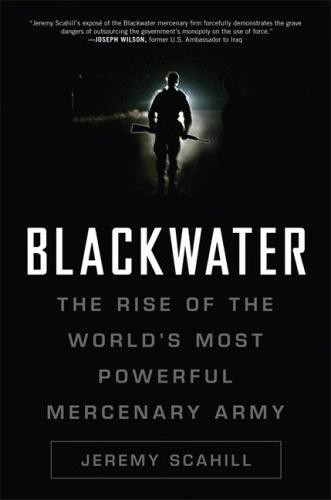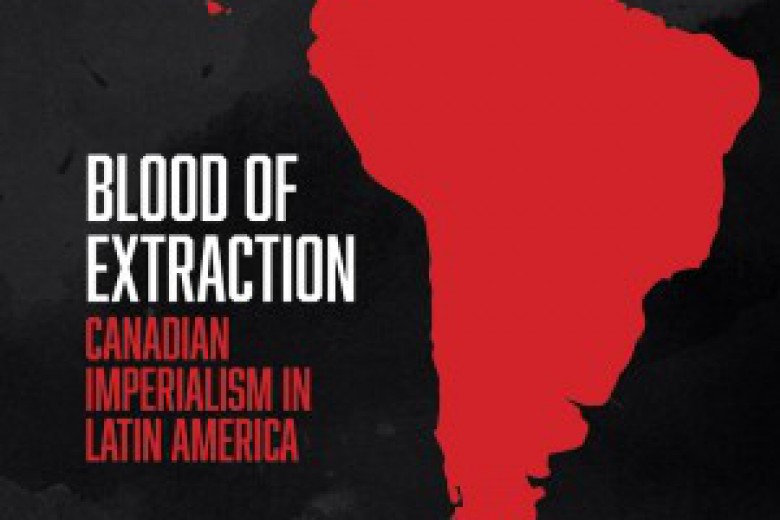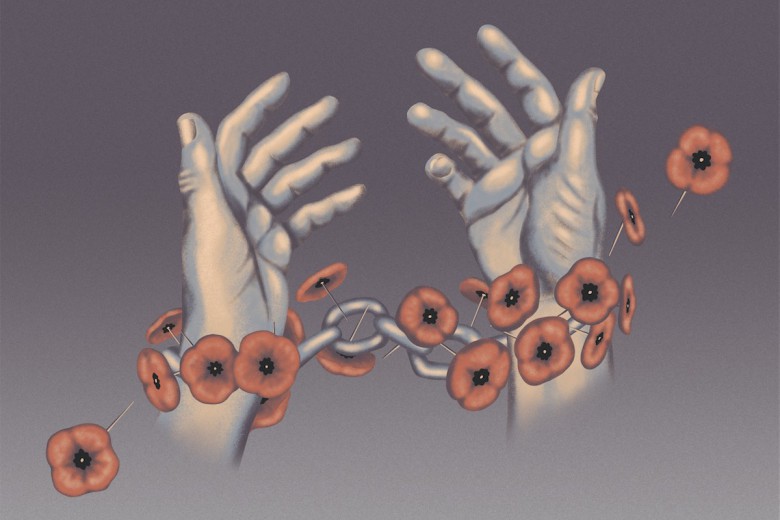
Blackwater: The rise of the world’s most powerful mercenary army
Jeremy Scahill
Nation Books 2007
The Shock Doctrine: The rise of disaster capitalism
Naomi Klein
Knopf Canada 2007
The Global War On Terror did not give birth to mercenary warfare: the Pharaohs used mercenaries, as did the Persians, Napoleon and Alexander the Great. The Romans and the British deployed soldiers-for-hire to police native rebellions, particularly in the twilight of their empires. Indeed, 19th century American industrialists and statesmen, lionized in so many textbooks and park monuments, made private security forces-particularly the infamous Pinkertons-an integral element in American social and political history. As Pinkerton was to private policing in the U.S. in the 19th century, Blackwater USA is to the American military of the 21st century: a symbolic expression of systemic capitalist forces running far deeper than a single company.
Formed in 1996 by two ex-Navy SEALS, and staffed almost entirely by retired Special Forces soldiers, Blackwater USA has grown into a billion-dollar mercenary firm. To trace the company’s history-as Jeremy Scahill does in his book Blackwater: The rise of the world’s most powerful mercenary army-is to marvel at their uncanny ability to exploit the defining moments of violence in the past decade in the American consciousness: Columbine, al-Qaeda attacks, wars in Afghanistan and Iraq, the catastrophe of New Orleans. Each calamity became a business opportunity, and Blackwater was poised to capitalize.
Fear of school shootings gripped the nation following the 1999 Columbine High School massacre. In response, Blackwater began constructing a 15-room, 4,500 square-metre high school on its Moyock, North Carolina compound-a tactical training facility not-so-tactfully named R.U. Ready High, replete with screaming children sound effects and blood-spattered walls. By September 1999, SWAT team members from police forces across the U.S., Canada, the U.K. and Haiti had trained with Blackwater at R.U. Ready High.
The following year, when two al-Qaeda operatives in a tiny fishing boat blew a 12-metre hole in the USS Cole as it docked in the Aden harbour, Blackwater responded quickly. They built a mock fibreglass warship and scored a $35-million contract from the Navy to train personnel in “force protection.”
As Blackwater co-founder Al Clark was the first to admit, “Osama bin Laden turned Blackwater into what it is today.” Company Vice President Chris Taylor elaborated in a 2005 speech at George Washington University: “The bombing of the USS Cole in Aden, Yemen, sent a ripple through the U.S. Navy, and then 9/11 happened and the ripple was worldwide.”
September 11 amplified many pre-existing violent trends, perhaps none more so than the explosion of a $100-billion, global, for-profit “security” industry. Although a relatively small player, Blackwater is a household name owing in large measure to a bloody massacre carried out by employees of the company in September of last year which left 17 Iraqis dead. With their wrap-around sunglasses and baseball hats, khakis and body armour, Blackwater guards are as much a symbol of American imperial adventurism as the 82nd Airborne-a kind of praetorian guard for the war on terror, as Scahill describes them.
Blackwater’s forces are not exclusively for foreign deployment, however. According to Blackwater vice-chair Cofer Black, immediately after Hurricane Katrina the company arrived in New Orleans without a contract but ready for work. In what was soon dubbed “Baghdad on the Bayou,” Blackwater’s contracts materialized in short order. Heavily armed private paramilitaries, fresh off assignment in Iraq, began policing the streets, “securing” neighbourhoods, and guarding disaster centres, holding facilities and relief depots. In many cases this was done in the complete absence of state police or the National Guard.
Scahill’s encounter with M4-toting Blackwater employees in New Orleans constitutes the book’s most compelling moments. “This is a totally new thing to have guys like us working CONUS [Continental United States],” one Blackwater contractor told him. Some believed they were “deputized” to make arrests. This, according to Scahill, is the harbinger of American democracy: the war brought home, and fought for profit.
If Scahill’s Blackwater illustrates an example of a much deeper trend, Naomi Klein names that trend “disaster capitalism.” She defines it as “orchestrated raids on the public sphere in the wake of catastrophic events, combined with the treatment of disasters as exciting market opportunities.”
In The Shock Doctrine: The rise of disaster capitalism, Klein deftly confronts and recasts three decades of neo-liberalism: from Pinochet’s Chile to Solidarity in Poland, Apartheid South Africa to the Asian Tsunami, Thatcher’s England to Yeltsin’s Russia, flooded New Orleans to Paul Bremer’s Iraq. In doing so, she demonstrates how the “holy trinity” of privatization, deregulation and social cuts are systematically implemented in the immediate aftermath and vulnerability of major shocks, be they environmental, economic, political or military.
The book’s scope is vast, and its thesis compelling. While the analysis itself is not particularly radical, the space that it opens up in our political discourse is. This history on its own is utterly devastating to the free market orthodoxy’s claims that democracy and neo-liberalism go hand in hand. Klein unfolds that history with a sober mixture of on-the-ground reportage and what Chomsky would call “impeccable establishment sources.” (Klein once debated a writer from The Economist using facts culled exclusively from The Economist).
The Shock Doctrine’s significance comes from Klein’s ability to tie together seemingly unconnected events from contemporary history, reanimating defeats or rollbacks of social justice so as to learn from them. She draws a direct line from the dirty wars and structural adjustment programs in South America to “year zero” in post-Saddam Hussein Iraq; from psychiatrist Ewen Cameron’s shock therapy experiments at McGill University in the 1950s and ’60s to the torture tactics in Abu Ghraib. She at once revives the economic analysis of the anti-globalization movement, seemingly wiped from the table in the post-September 11 political landscape in North America, and couples it with the kind of historical understanding of the “war on terror” that has been sorely lacking in other recent attempts to make sense of the major events of the last several years. The Shock Doctrine is an important contemporary history, a primer that leaves its audience that much more ready to fight back when the next shock comes.



_780_520_90_s_c1.jpg)


